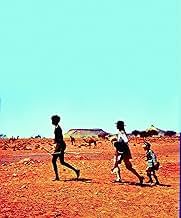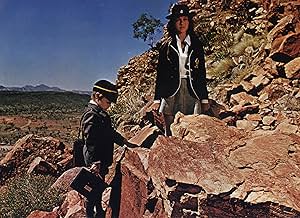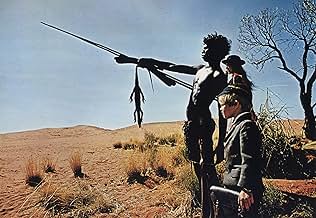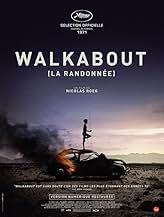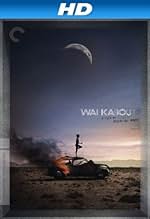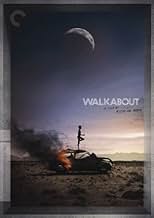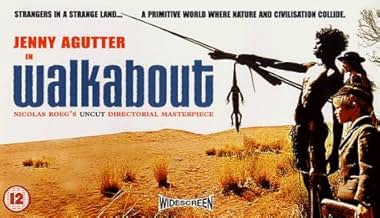अपनी भाषा में प्लॉट जोड़ेंTwo city-bred siblings are stranded in the Australian Outback, where they learn to survive with the aid of an Aboriginal boy on his "walkabout": a ritual separation from his tribe.Two city-bred siblings are stranded in the Australian Outback, where they learn to survive with the aid of an Aboriginal boy on his "walkabout": a ritual separation from his tribe.Two city-bred siblings are stranded in the Australian Outback, where they learn to survive with the aid of an Aboriginal boy on his "walkabout": a ritual separation from his tribe.
- निर्देशक
- लेखक
- स्टार
- पुरस्कार
- 1 जीत और कुल 1 नामांकन
- Black Boy
- (as David Gumpilil)
- Man
- (as Robert McDara)
- No Hoper
- (as Pete Carver)
- German Scientist
- (as Noelene Brown)
- Radio Announcer
- (वॉइस)
- (बिना क्रेडिट के)
फ़ीचर्ड समीक्षाएं
To expect Roeg not to dwell on images is to expect Tolstoy not to go off on 20-page rants about how the lack of Napoleon would necessitate another to fill his historical role. One overlooks idiosyncracies in one's friends.
I found the movie much more powerful than I expected. My only disappointment with the Criterion DVD release is with the commentaries. I would love to have heard more about the story, and it would have been nice to have heard from David Gulpilil, whose role as the aborigine was a watershed in Australian cinema, as noted in the IMDb article on his career.
क्या आपको पता है
- ट्रिवियाLuc Roeg was actually sun-burnt in the scene where the aboriginal boy treats his back by rubbing him with fat from a wild boar. Director Nicolas Roeg thought it would make a good scene for the film so he picked up the camera and shot it.
- गूफ़The credits name the actor playing "Black Boy" as David Gumpilil. It should be David Gulpilil.
- भाव
Narrator: [last lines - from "Poem XL" by A.E. Housman's "A Shropshire Lad"] Into my heart an air that kills, From yon far country blows: What are those blue remembered hills, What spires, what farms are those? That is the land of lost content, I see it shining plain, The happy highways where I went, And cannot come again.
- क्रेज़ी क्रेडिटAfter the credits, there is a flash of white light on the screen and as it becomes a black screen, radio tuning is heard while the words "rien ne va plus" are shown.
- इसके अलावा अन्य वर्जनA director's cut of this movie was released in 1997 with 5 additional minutes. This cut is identical to the original British release version (100 minutes): the film was shortened by five minutes for its original American release.
- कनेक्शनEdited into Terror Nullius (2018)
- साउंडट्रैकElectronic Dance
Written and performed by Billy Mitchell
टॉप पसंद
- How long is Walkabout?Alexa द्वारा संचालित
विवरण
- रिलीज़ की तारीख़
- कंट्री ऑफ़ ओरिजिन
- भाषाएं
- इस रूप में भी जाना जाता है
- Encuentro de dos mundos
- फ़िल्माने की जगहें
- उत्पादन कंपनियां
- IMDbPro पर और कंपनी क्रेडिट देखें
बॉक्स ऑफ़िस
- बजट
- A$10,00,000(अनुमानित)
- दुनिया भर में सकल
- $1,888


